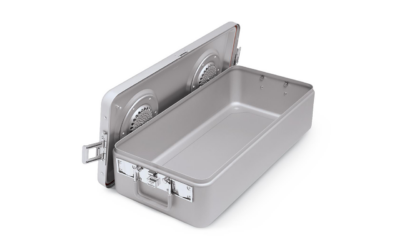
The global medical carts market was valued at $1.28 billion in 2016 and is expected to witness a compound annual growth rate (CAGR) of 15.2% through 2025, according to Grand View Research (GVR).
A rising incidence of musculoskeletal injury (MSI) and the growing adoption of electronic medical records (EMR) in hospitals are key contributors to market growth. Increasing adoption of mobile carts can be attributed to the availability of technologically advanced products that offer better configuration, construction, options and features to meet requirements of consumers.
To offer hassle-free care to patients, a selection of appropriate mobile carts is crucial. For example, demand for small-handled devices is increasing to streamline routine clinical workflows, including medication recording, supplies used for fluid administration and detailed documentation of inpatient admissions, according to GVR.
“Growing need to help medical and surgical staff is expected to propel market growth over the forecast period. On the surgical floor, a secure medication cart coupled with a tablet PC is more convenient than using a separate medication and computer cart. This saves space as well as cost,” according to GVR. “Critical care units have limited floor space and can benefit from such solutions. As a result, demand for medical carts in these units is expected to increase over the forecast period.”
The emergence of telemedicine/telehealth and availability of technologically advanced medical carts are among factors contributing to market growth. These products improve nursing efficiency, and this helps in better caregiving to patients. Rise in demand for point-of-care diagnostic technology is also a key growth driver.
Mobile computing carts held the dominant revenue share in 2016 owing to high adoption by hospitals. Technologically advanced mobile computing carts have a battery-operated system consisting of a lithium iron phosphate battery. In addition, changing ergonomics and advanced designs for mobile medical carts are expected to boost demand over the forecast period. Vendors are focusing on development of easy-to-implement technologies to gain an edge over their competition.
Increasing emphasis on improving nursing efficiency, growing need to curtail hospital costs, and rising importance of quick and easy accessibility to critical medical supplies and equipment in hospitals are some of the factors contributing to the high adoption of mobile computing carts.
Furthermore, supportive government initiatives for the adoption of EMR and telehealth services in hospitals are contributing to the dominance of the segment in the market for medical carts. Increase in adoption of EMR such as Electronic Medication Administration Record (eMAR) and Bar Code Medication Administration (BCMA) to prevent medication errors is anticipated to propel market growth.
Allied Market Research forecasts growth, too.
The global medical carts market is expected to reach at $1.3 billion by 2023 from $571 million in 2016, registering a CAGR of 12.4% from 2017 to 2023, according to Allied Market Research.









